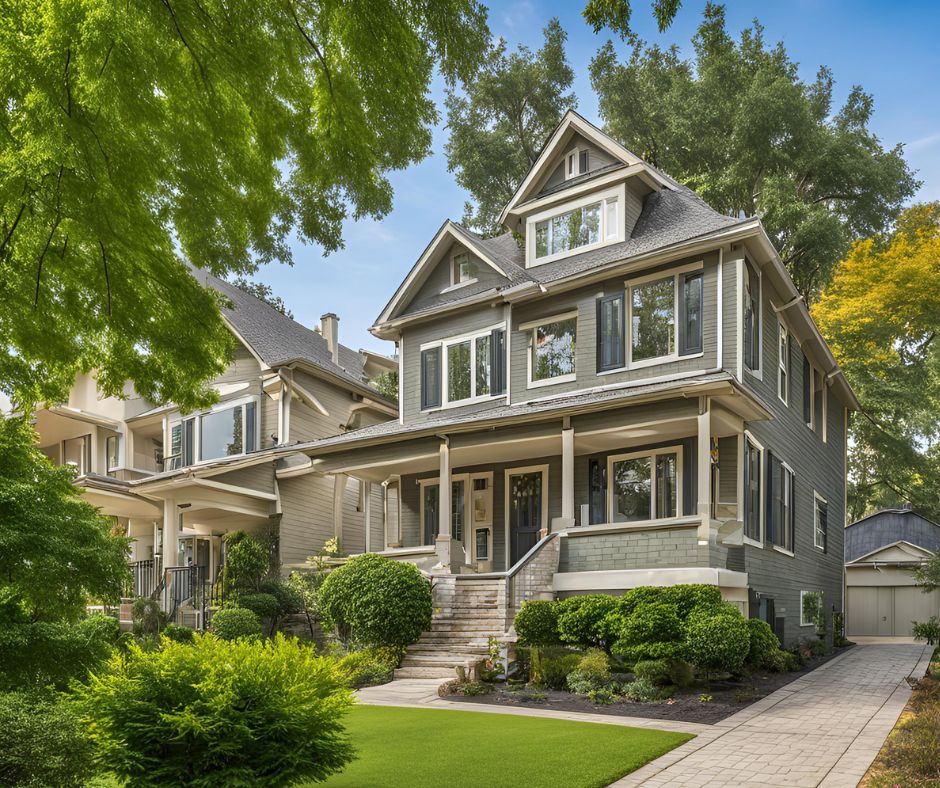Selling your home can be both exciting and nerve-wracking, especially when deciding on the right listing price. Setting an appropriate price is critical; too high, and your property may sit on the market too long, too low, and you might leave money on the table. Here’s a comprehensive guide to help you determine the perfect price point for your home.
1. Understand Your Local Market
The first step in pricing your home is understanding the current state of your local real estate market. Is it a buyer’s market or a seller’s market? In a seller’s market, where demand exceeds supply, you may have more leeway to price higher. In a buyer’s market, competitive pricing is crucial to attract potential buyers.
- Tip: Look up market trends in your area by consulting local real estate reports or working with a knowledgeable real estate agent.
2. Analyze Comparable Sales (Comps)
Real estate professionals often analyze recent sales of comparable properties, known as “comps,” to determine a suitable listing price.
- What to Consider in Comps:
- Location proximity
- Similar square footage
- Age and condition of the home
- Recent renovations or upgrades
- Lot size
By studying these factors, you can gauge what buyers are willing to pay for homes like yours.
3. Assess Your Home’s Unique Features
Every home has unique qualities that can add or detract from its value. Consider:
- Modern upgrades (e.g., updated kitchen or bathroom)
- Energy-efficient features
- Outdoor amenities like a pool or deck
- Location advantages (e.g., proximity to schools or parks)
4. Get a Professional Home Appraisal
Hiring a professional appraiser can provide a more accurate estimate of your home’s value. An appraiser considers:
- Condition of the property
- Comparable sales in the area
- Current market trends
While it’s an added expense, a professional appraisal can prevent costly pricing mistakes.
5. Factor in Online Search Behavior
Buyers often use price filters when searching for homes online. Pricing your home just below a round number (e.g., $399,000 instead of $400,000) can increase its visibility in searches and attract more potential buyers.
6. Account for Emotional Attachment
It’s common for homeowners to feel their home is worth more due to sentimental value. While understandable, remember that buyers will not share this attachment. Stick to objective data and market-driven pricing.
7. Adjust Based on Feedback
Once your home is listed, monitor the feedback from showings and adjust your price if necessary. If your property isn’t generating interest after a few weeks, it may be time to reassess.
- Signs Your Price Might Be Too High:
- Few showings or offers
- Similar homes selling faster in your area
8. Consult a Real Estate Agent
Experienced real estate agents bring invaluable insights into pricing strategies. They can provide a competitive market analysis (CMA) and recommend a listing price based on their expertise.
Final Thoughts
Choosing the right listing price for your home is a blend of art and science. By understanding the market, analyzing comparable sales, and relying on professional advice, you can set a price that maximizes your chances of a successful sale. Remember, a well-priced home not only sells faster but often achieves the best financial outcome.
Follow me on https://www.instagram.com/networthbuilders/
For any questions or concerns call or text me at 832-776-9582 or Email : Wale@NetworthBuilders.com

